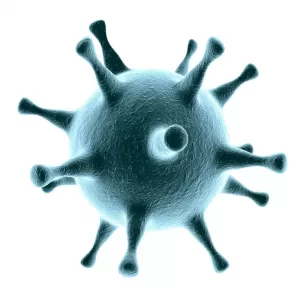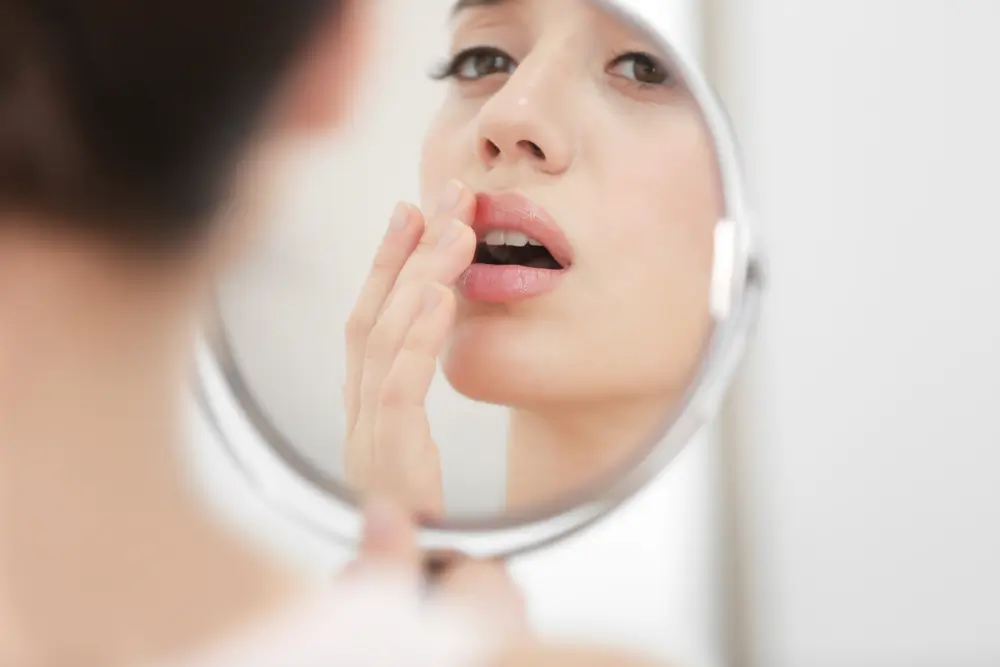Cold Sores- symptoms, causes & treatment
What causes cold sores?
Cold sores are an occasional nuisance for some people, but for others they can be a more frequent and troublesome problem. 1 in 5 people suffer from repeated bouts of cold sores or “herpes labialis” to use its medical name. Whilst the Herpes Simplex Virus Type 1 (HSV1) is usually to blame, the genital herpes virus (HSV2) can occasionally cause cold sores around the mouth.
HSV1 is spread by skin to skin contact, such as kissing someone who has an ‘active’ cold sore. Most infections first occur in childhood, but may not cause any obvious symptoms at the time- HSV1 can live silently in a nerve around the lip area, later flaring up to cause cold sores.
What can trigger flare ups?
It is thought that cold sores may be triggered in the following situations:
- Viral illnesses or other infections
- During menstrual periods
- Stress
- Fatigue
- Direct sunlight/UV exposure
What are the symptoms of cold sores?
- There is often a tingling sensation around the lip, followed by the appearance of fluid-filled sores/blisters, which may cause pain or discomfort.
- These sores may weep and then form scabs.
- Once they have ‘scabbed over’ they are no longer infectious and usually settle without any scarring.
Are cold sores contagious?
Yes, they are contagious until they scab over, so skin-to-skin contact with the affected area should be avoided. It is important to avoid spreading HSV1 infection to newborn babies and anyone who has a weakened immune system (for example, those having chemotherapy for cancer). If you do not have any active cold sores you are not usually infectious to others.
Do I need any tests to confirm the diagnosis?
Usually no tests are required- the symptoms and typical appearance of cold sores caused by HSV1 are enough to confirm the diagnosis. If there’s any doubt, a swab can be taken from the blister fluid, which can help confirm if HSV1 is present. In most cases, no treatment will be necessary, but some people with bad recurring infection may wish to consider treatment for cold sores.
What is the best treatment for cold sores?
Most cold sores will get better without any treatment in 7-10 days.
General measures include:
- Avoid touching cold sores, unless applying creams.
- Wash hands thoroughly after touching cold sores
- Avoid sharing lip balms/sunscreen etc
- Careful hand hygiene is needed if you wear contact lenses- it is better to wear your glasses when your cold sores are flaring up. If you develop any eye symptoms, you should seek medical advice immediately
- Pain can be eased by over the counter painkillers. Soothing gels or creams such a local anaesthetic gel can also help with pain. These are available from your pharmacy.
Antiviral creams
Antiviral creams can be bought over-the-counter at pharmacies. Topical treatment for cold sores may slightly reduce the severity of symptoms, though some experts believe it is the action of rubbing the cream in that actually helps!
Antiviral tablets
Oral antiviral tablets can be used as treatment for cold sores, particularly in people who have troublesome or frequent bouts, or whose immune system is weakened due to certain medications or medical conditions. They may help stop the virus multiplying and reduce the severity of symptoms. In some severe recurrent cases your doctor may even recommend a longer course of preventive treatment.
If you have further questions about cold sores, speak to your pharmacist or GP.
Getting a Mental Health Care Plan in Australia: Your Guide
Getting a Mental Health Care Plan in Australia: Your Guide Mental health matters—and if you’re feeling overwhelmed, anxious, or down, a mental health care plan can help. But what is it, and how do [...]
UTI Symptoms and Treatment: What You Need to Know
UTI Symptoms and Treatment: What You Need to Know Urinary Tract Infections (UTIs) are common, uncomfortable, and often disruptive. But what exactly are the signs to watch for, and how can you get relief [...]
Free Mental Health Care Plan Online | Bulk-Billed by Qoctor
Free Mental Health Care Plan Online | Bulk-Billed by Qoctor Discover how to get a free, bulk-billed Mental Health Care Plan (MHCP) in Australia through Qoctor's telehealth service. Accessing [...]






